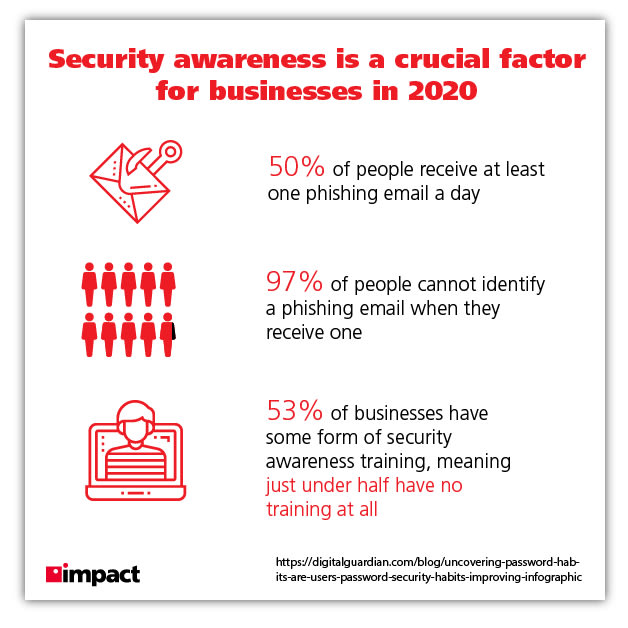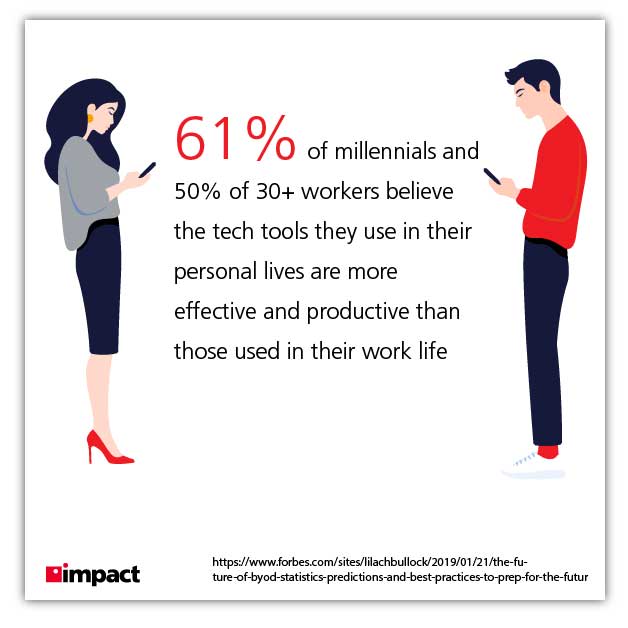A digital transformation strategy for change has been something that businesses have grappled with to varying extents over the last few years, but recent circumstances have shone a light on the digital capabilities of businesses all across the country.
Studies suggest that 70% of organizations either have a strategy, or are working on one
While most companies have some kind of plan in place for implementing digital solutions, just 21% of them believe they’ve completed their transformations.
Of course, it’s worth noting that transformation is a long-term plan, but there is nonetheless a worryingly large percentage of SMBs that have yet to either see their plans through, or worse still, have no plans at all.
Today, we’re going to look at four reasons having a digital transformation strategy is more important than ever before.
Culture Has Changed
When we speak about positive digital interactions, it’s often the case that solutions implemented for customers are top priorities for SMBs.
This is, of course, completely true and totally reasonable.
We’ve frequently spoken about just how important it is to provide customers with digital experiences they’ve come to expect.
The same is also true of employees.
Workers expect employers to offer them all the digital tools they need to perform their job to the best of their abilities.
Related Post: What Is Unified Communications as a Service?
While improving the customer experience consistently ranks as the most important driver for digital transformation among SMBs, 42% of organizations report that the digital employee experience is seen as just “somewhat important”
In 2020, this expectation is greater than ever, and it’s mutually beneficial to provide a positive workplace environment for workers.
Organizations with compelling digital workforce experiences generate 22% higher engagement among workers than organizations with a less compelling experience.
That’s without even mentioning that employees are four times more likely to stay in their jobs if their work gives them the digital tools they need to improve their working lives.
In short, the digital experience of employees is an important aspect of your business’ future, and if improving it wasn’t already a part of your plans, it should to be now.
Your Security Matters
The recent surge of phishing scams associated with the coronavirus outbreak has exacerbated an already prevalent issue for SMBs.
There is an increasing number of cyberattacks that now target small and midsize organizations.
76% of businesses reported being the victim of a phishing attack in 2018 and 96% of IT decision makers believe their organizations are susceptible to external threats
Business security is more important than ever—organizations possess more data, and more endpoints, than ever.
Big data, the term for structured and unstructured data that passes through modern companies, means there’s more information to look after—and more a stake.
Laws like GDPR, CCPA, HIPAA, and other data laws are requiring SMBs to take their security seriously, or face fines.
Meanwhile, the Internet of Things has meant a proliferation of devices that exist within any given office—whether it’s laptops, phones, printers, TVs, or other items connected to the network.
For cybercriminals, this means an abundance of new entry points into a business’ network, and so it’s extremely important that SMBs consider whether their cybersecurity program is adequate for their needs.
Improve Your Flexibility
The recent coronavirus outbreak has been a litmus test for many SMBs—primarily their ability to shift their work practices on a dime.
With millions of Americans working from home, this ability has been thrown into sharp relief—and unprepared businesses are having to learn very quickly how to respond to this.
With regard to a digital transformation strategy, the organizations who will see the smallest disruptions in their business will be the ones who have already implemented solutions which allow them flexibility in these situations, principally from cloud solutions.
Related Post: 6 Remote Work Considerations for SMBs
Among workers typically not permitted to work from home, 3 in 10 consider their employers to be “not an innovator or early adopter of new technology or software products or services”
These solutions could be next-gen antivirus or ERP—products that give employees the tools to do their jobs effectively from anywhere with the right protections.
Staying Competitive
The fundamental reason companies invest in new technologies is first and foremost to give themselves a competitive advantage.
56% of executives believe digital improvements have already garnered them higher profit margins
A strategy for transformation of the digital capabilities of a modern business is essential to compete with competitors who have already begun investing and implementing new tech.
Customers expect quality digital experiences from companies, and companies must be able to offer them what they need with tools that are becoming more and more viable for SMBs to utilize.
80% of revenue growth will hinge on digital offerings by 2022
If it wasn’t already apparent that businesses need a strong level of technological competence in their organizations, recent events have shown that prepared businesses can fare a lot better in a crisis than those that aren’t.
Crisis or no crisis, businesses must invest in their technology in order to remain competitive and continue to strengthen their organization.
Takeaways
- Many businesses have transformation strategies, but few have completed or come near to completion
- Customers and employees expect positive technology experiences from businesses
- Cyberattacks are prevalent and more dangerous than ever, meaning security is very important
- New technology gives businesses the flexibility and means to be competitive
A digital transformation strategy is crucial for a modern business. MSPs provide the tools and expertise to help guide a transformation, whether it’s implementing cloud services or a raft of new technology. To find out more about how an MSP can help, download our eBook, “Does Your Business Need a Managed IT Service Provider?”


